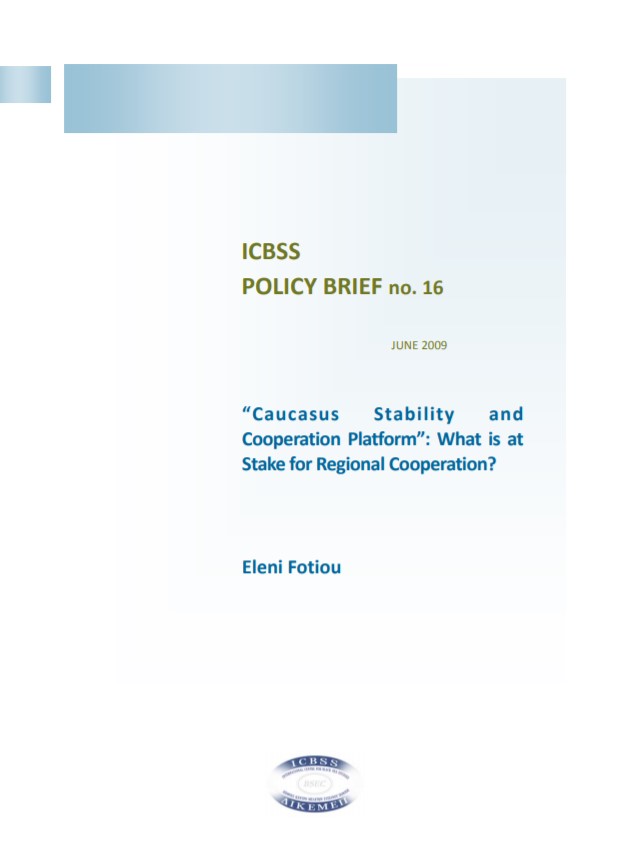 Title: “Caucasus Stability and Cooperation Platform”: What is at Stake for Regional Cooperation?
Title: “Caucasus Stability and Cooperation Platform”: What is at Stake for Regional Cooperation?Series: Policy Brief
Published by: ICBSS
Release Date: June 2009
Pages: 26
Author: Eleni Fotiou
Since the start of the Justice and Development Party (AKP) government’s second term in office (July 2007 to date), which coincided with an upgrading of Prime Minister Recep Tayyip Erdogan’s Senior Advisor Ahmet Davutoglu’s role, Turkey’s foreign policy has begun to pursue a regional “soft power” role. The Georgian-Russian war of August 2008 served as a catalyst for Turkey’s immediate quest for security in pro-active terms; in the context of the “zero-problems with neighbours” policy (“komşular arası sıfır problem”) and “rhythmic diplomacy” (“ritmik diplomasi”), the Turkish leadership proposed the establishment of a “Caucasus Stability and Cooperation Platform”. In this paper, the author attempts to assess the potential of this initiative by looking at the motives and the leverage of Turkish foreign policy, and by analysing the real position, the perceptions and intentions of the various regional and external stakeholders, namely Armenia, Azerbaijan, Georgia, Russia, the United States and the European Union. Essentially, the author seeks to present the limitations of the initiative and the opportunities that emerge through alternative frameworks for regional cooperation.
The edition is available here.
